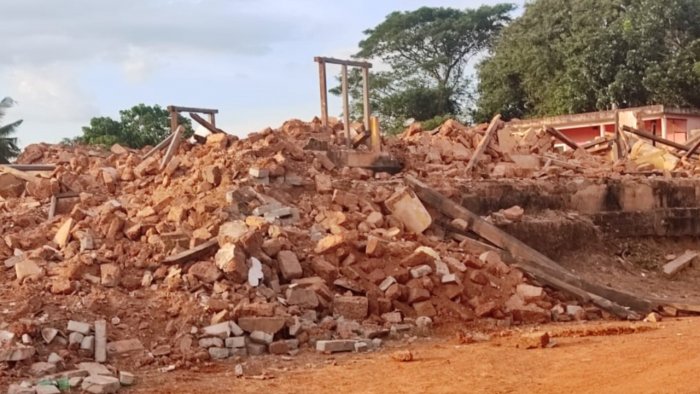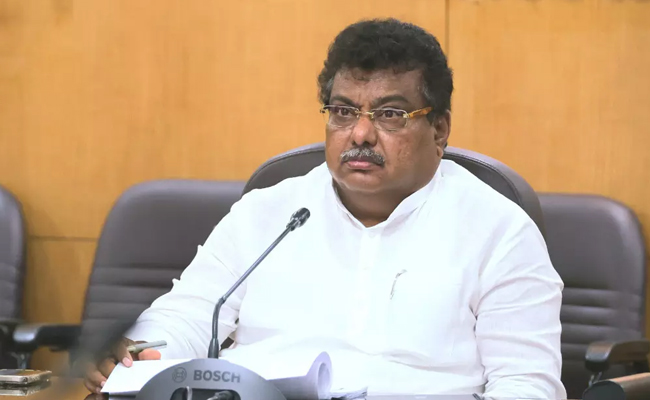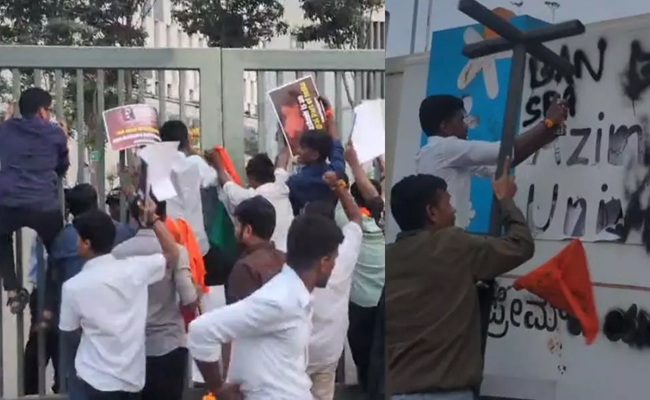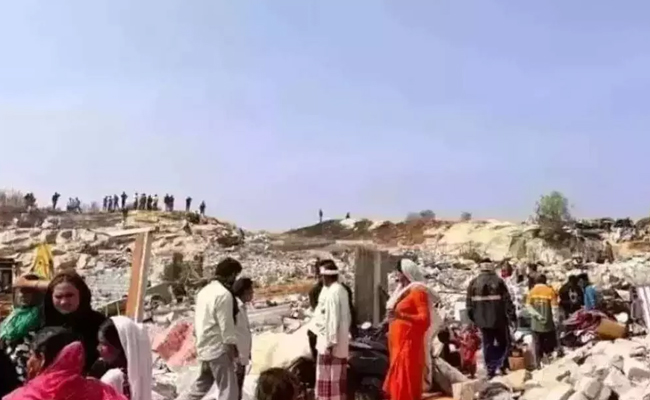Puttur, Dec 15: The demolition of a 156-year-old heritage school building at Nellikatte in Puttur taluk of Dakshina Kannada district has kicked up a controversy, after which the DK deputy commissioner K V Rajendra has sought a report from the education department.
The heritage structure was built by the British East India Company in 1865 to cater to the schooling needs of the region. Jnanpith awardee Dr K Shivaram Karanth had also used the building to direct plays and the villagers had wanted the building to be restored as a memorial museum after the litterateur.
The building was razed overnight three days back by the school development and monitoring committee (SDMC) which claimed that the building was beyond repair.
According to SDMC president Panchakshari, a part of the dilapidated building collapsed when they tried to carry out some repair work on the building. The building was then razed as it posed threat to students as the school ground is located nearby.
Classes were not being held in the building for long and a proposal to restore the building was pending before the authorities.
Following an uproar from literary enthusiasts and villagers over the demolition, DK district deputy commissioner K V Rajendra has directed the deputy director of public instruction (DDPI) and zilla panchayat chief executive officer to submit a report on the incident.
People claimed that the SDMC did not have the authority to take a decision on demolition. They also did not inform the departments concerned before razing the structure.
The DDPI has now sought a report from the block education officer who has served a notice to SDMC and the school headmaster seeking an explanation on the circumstances that led to the demolition.
Let the Truth be known. If you read VB and like VB, please be a VB Supporter and Help us deliver the Truth to one and all.
Bengaluru (PTI): Karnataka Minister M B Patil on Tuesday chaired meetings with industry representatives from the aerospace and defence, machine tools, auto/EV, and green energy sectors to discuss sector growth and government support measures.
The meetings were attended by leading industrialists and their representatives, with some participating virtually.
Speaking on the occasion, the minister for Large and Medium Industries said Karnataka is at the forefront of the country’s aerospace and defence sectors.
He noted that Suzuki and Toyota plan to launch aerial taxi services in Japan by 2028, with Bengaluru-based Sasmos supplying electrical equipment for the project.
Industrialists suggested introducing similar “fly-taxi” services in Karnataka through an appropriate policy, which Patil said would be examined seriously.
The minister highlighted the need to establish testing centres and Common Facility Centres for the aerospace and defence industries and assured that these facilities would be provided.
Suggestions were also made to prepare a comprehensive roadmap for sector growth.
Karnataka has urged the Central Government to approve Defence Corridor projects in the Bengaluru North–Kolar–Chikkaballapur and Dharawada–Vijayapura–Belagavi regions.
Industrialists also suggested a corridor between Bengaluru and Mysuru, Patil said.
He said Karnataka aims to become a hub for defence electronics manufacturing, with plans to establish a 200-acre Defence Electronics Park and a 100-acre Avionics and Sensor Park.
These projects will be implemented once the Special Investment Region is operational, and land availability will not be an issue.
On the machine tools sector, Patil said the industry has recorded an annual turnover of Rs 36,500 crore and is witnessing steady growth.
Large-scale exhibitions have increased demand, and the state must strengthen its capabilities to develop control systems for heavy machinery. One testing unit is already operational in Bengaluru, with another planned for Tumakuru. Expansion of vocational training institutes in industrial areas is also underway.
In the Auto and EV sector, Vision Group members highlighted the need for a network of dry ports and more EV charging stations across the state.
Patil noted that the Tata Group is manufacturing EV buses in Dharawada for nationwide supply. Plans for mini excavator production and export facilitation were also discussed, along with the establishment of a testing facility for two-wheeler EVs.
For the Green Energy sector, the group emphasised the need for a suitable policy on battery-based energy storage and the establishment of data centres.
Patil assured that the government will seriously consider all suggestions and respond positively.





_vb_21.jpeg)